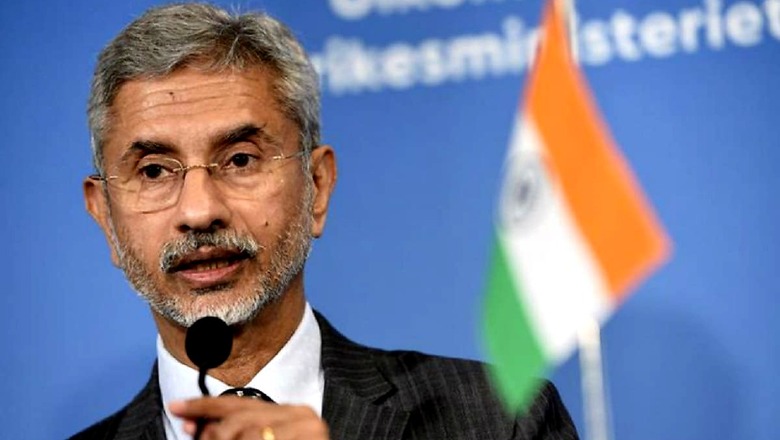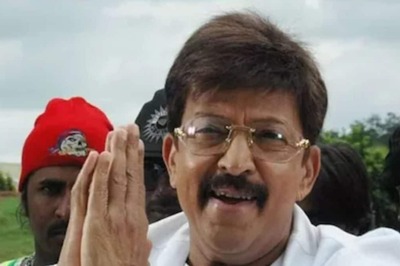
views
At a time China is attempting to expand its influence in the region, India and Japan are looking at working together in third countries like Sri Lanka, Bangladesh and Myanmar, reflecting growing congruence of their strategic interests. External Affairs Minister S Jaishankar on Friday said both India and Japan have actually started to look at working practically in third countries, adding ”we have done a little bit of that in Sri Lanka.” He said the signing of a military logistics pact by India and Japan recently would act as a ”big plus” for the evolution of Indo-Pacific vision of both countries and add to the security and stability of Asia.
He was speaking on India-Japan ties at a conference organised by industry chamber FICCI. The external affairs minister also said that large and important nations of Asia should get along together as spending their energies in countering each other would not advance the interests of the continent.
The comments, which came at a time Asian giants India and China are locked in a bitter border standoff, are seen as an indirect reference to China. ”If we are to make Asia a more prominent place in world politics, then it is important for all nations, especially the large and important ones to get along together. Because if they spend their energies not in a positive manner, but kind of countering each other, they are not going to advance the interests of Asia,” he said.
Talking about evolution of India-Japan ties, Jaishankar said both countries are now looking at working together in third countries, adding it is still in the ”early stages”. ”The fact that we first began to have discussions about third countries. Now we have actually started to look at working practically in third countries. We have done a little bit of that in Sri Lanka,” he said.
”I think today we are trying to see whether we can cooperate and coordinate more closely in Bangladesh and Myanmar that I regard as something which would take our relationship to a very different level,” he added. The external affairs minister also suggested that there was scope for India and Japan to work in Russia’s Far Eastern Region as well as in Pacific Island countries.
”If I were to look a little beyond the horizon, I would flag today two issues for people to think about. We need to see those areas where we can work together. One, of course, is the possibility of economic cooperation in Russia’s far east because India has shown a much greater willingness to be involved in economic projects there,” he said. The other option, he said is the Pacific island countries where India has been ramping up its development partnership and political footprint. On signing of the military logistics pact between India and Japan, he said it was a very practical manifestation of the ability and intent of the two countries to work together.
”I am very confident that it would be both a big plus for the evolution of the Indo Pacific vision of both countries as well as adding to the stability and security of Asia,” he said. The landmark pact, signed on September 9, provides for the two armies to access each other’s bases for logistics support.
Jaishankar said both India and Japan have their vision for the Indo-Pacific region and the two countries have, in many ways, tried to shape the narrative over the issue. ”India has a vision for Indo-Pacific as does Japan. Both of us, in many ways, have tried to shape the Indo-Pacific narrative. Today, the seamlessness of what happens in the Pacific and Indian Ocean regions underlines the importance and relevance of Indo-Pacific,” he said.
The external affairs minister said the ties between India and Japan have grown manifold in its substance and depth over the last few years as two sides have greater convergence in strategic regional and global issues. He also mentioned the cooperation between the two countries in ’Quad’, ASEAN and East Asia Summit.

















Comments
0 comment